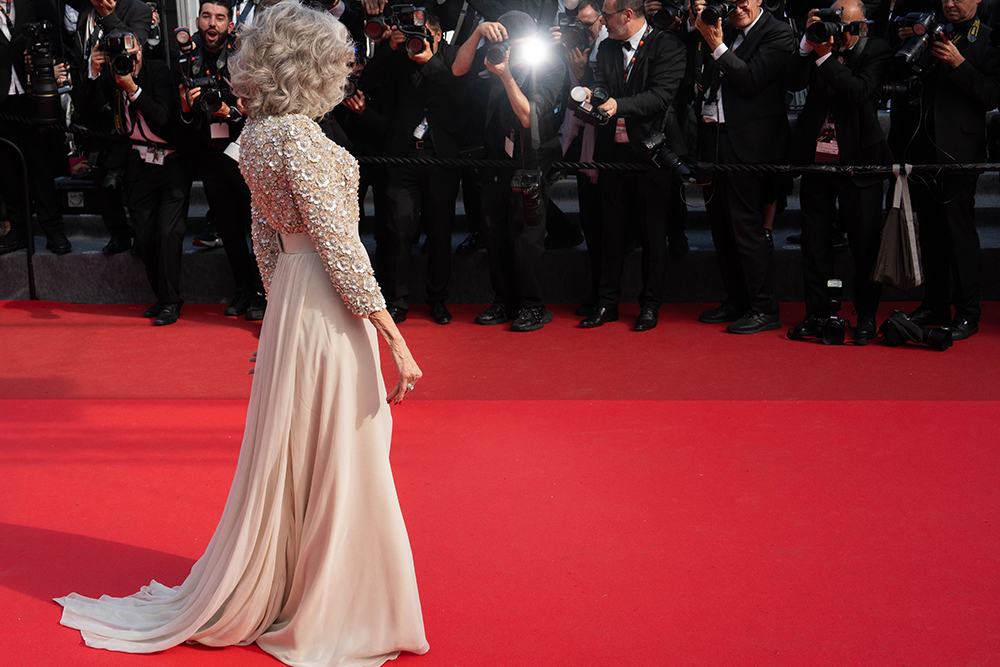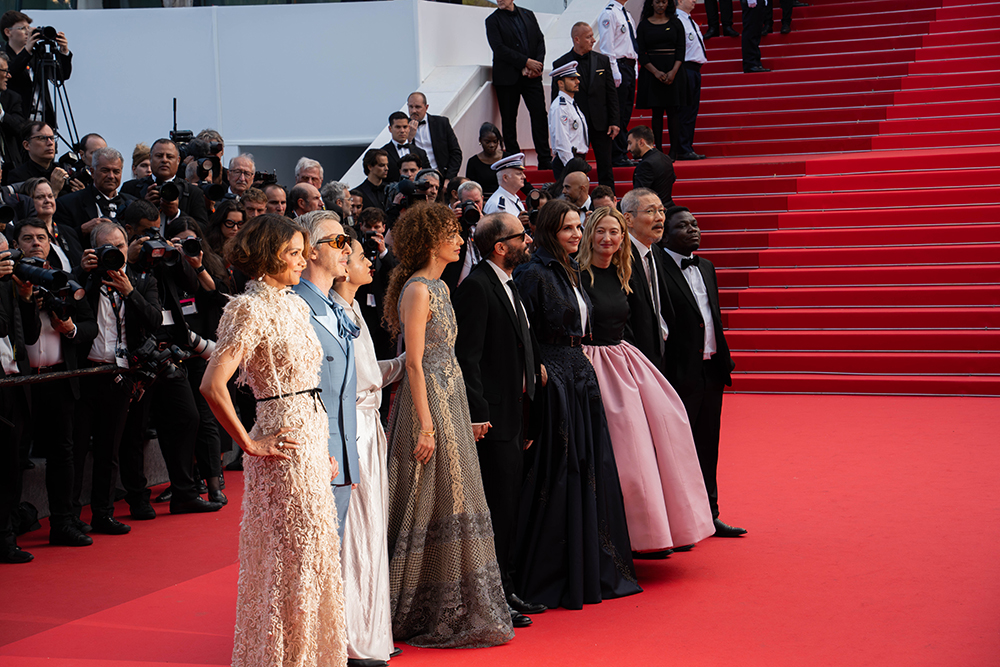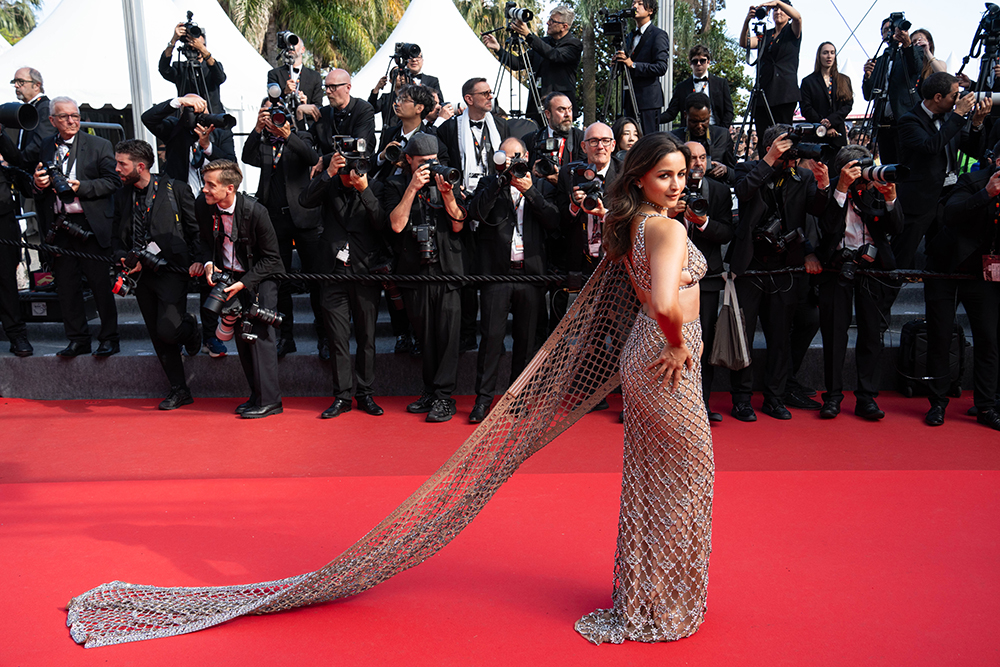Festivals - Cannes 2025 : Closing Ceremony Ends on a Politically Charged, Emotionally Resonant High as Jafar Panahi Triumphs
By Mulder, Cannes, Palais des Festivals et des Congrès de Cannes, 24 may 2025

Cannes 2025 concluded on the evening of May 24th with a closing ceremony that can only be described as a powerful blend of high fashion, global politics, intimate emotion, and unforgettable cinema. The opulent Palais des Festivals et des Congrès, bathed in golden lights and echoing with the final buzz of the Croisette, welcomed a room filled with stars, cinephiles, and decision-makers of the industry. Yet amidst all the glamor and ceremony, one name reverberated more than any other—Jafar Panahi. When Cate Blanchett, stepping onto the stage like an apparition in her breathtaking black gown evocative of a gothic angel, uttered his name as the winner of the Palme d’Or for Un simple accident, time seemed to momentarily suspend. The audience, holding their breath, erupted into a thunderous applause that underscored not just a celebration of cinematic brilliance, but also a collective recognition of the risks Panahi took to tell a story under oppressive conditions. The Iranian filmmaker, long targeted by his government and previously jailed for his work, climbed the stage visibly moved, flanked by his cast, several of whom were in tears. What followed wasn’t merely a speech—it was a manifesto. “Mettons tous les problèmes, les différences à côté, le plus important, c’est notre pays et la liberté de notre pays,” he declared, a line that drew standing ovations and brought palpable intensity to a ceremony usually dominated by polite applause and photo ops.
The decision to award Panahi was not only a celebration of artistic achievement, but also a statement of solidarity from a jury unafraid to get political. Presided over by the ever-graceful and sharp Juliette Binoche, the jury included a powerful mix of international voices such as Halle Berry, Leïla Slimani, Carlos Reygadas, Hong Sangsoo, Payal Kapadia, Jeremy Strong, Dieudo Hamadi, and Alba Rohrwacher. Their deliberations, we’re told, were both passionate and exhausting—perhaps explaining the noticeable fatigue on some of their faces during the ceremony. Yet, while most members appeared emotionally engaged and celebratory, it was Halle Berry’s detached demeanor that drew widespread attention. As Panahi accepted the Palme d’Or, Berry, seated beside Jeremy Strong, clapped but looked distant, her gaze drifting into an emotional void far from the charged atmosphere surrounding her. Social media quickly lit up with speculation: was it exhaustion, disinterest, or simply the weight of two intense weeks of screenings and debate? Berry, often praised for her poise and charisma, seemed elsewhere during the evening’s most crucial moment. Her silence, juxtaposed against Panahi’s impassioned plea, created an eerie visual contrast that did not go unnoticed, adding an unexpected layer to the night’s drama.

The host for the evening, actor Laurent Lafitte, added his own texture to the event. Dressed in a sharply tailored dark suit, he opened the ceremony with his trademark charm, though not without a few hiccups. Whether it was the occasional stumble in his speech, the slightly misfired jokes, or the telltale signs of nerves, his presence brought an authenticity that Cannes ceremonies sometimes lack. It was a refreshing change to see the human side of such a glitzy event. But the path to the ceremony had not been smooth. That very morning, the city of Cannes experienced an unexpected power outage, briefly interrupting the screening of Sirât, a film by Oliver Laxe. According to local authorities, the outage was the result of “actes malveillants”—malicious acts that disrupted electrical grids across the city. Fortunately, the Palais des Festivals remained unaffected, thanks to its private power system, and the evening's event proceeded with all the luminous grandeur that one associates with Cannes. Still, the disruption served as a symbolic reminder of the fragile balance between spectacle and reality, between celebration and vulnerability.
Beyond Panahi’s win, the jury delivered a lineup of awards that spoke volumes about the evolving face of cinema and the kinds of stories that resonate today. Brazilian actor Wagner Moura took home Best Actor for his electric performance in L’Agent secret, a film that also earned Kleber Mendonça Filho the Best Director award. Moura, best known to international audiences for his portrayal of Pablo Escobar in Narcos, brought a raw, intimate energy to a role that demanded both restraint and explosive emotion—a performance that jury members later said was “impossible to forget.” On the actress front, the award for Best Performance went to Nadia Melliti, a relative newcomer who stunned audiences in La Petite Dernière, directed by Hafsia Herzi. Adapted from Fatima Daas’ book, Melliti’s role explored the dualities of heritage and modernity, tradition and rebellion, with quiet power and grace. Her win not only signaled the arrival of a major new talent but also reflected the jury’s attention to films grounded in personal truth and societal complexity.

The Dardenne brothers, ever-present titans of the Croisette, were awarded Best Screenplay for Jeunes Mères, a film that revisits their obsession with family, poverty, and resilience. Their win was tinged with melancholy, as it followed the passing of Emilie Dequenne, the actress who shot to fame with their Palme-winning Rosetta. The Grand Prix, the second most prestigious honor of the evening, went to Joachim Trier’s Valeur Sentimentale, which had already made waves earlier in the week by receiving a staggering 19-minute standing ovation—the longest of this year’s edition. Starring Renate Reinsve and Elle Fanning, the film revisited Trier’s preoccupations with memory, time, and love lost, and marked a soulful reunion between Trier and Reinsve, who together had captivated Cannes in 2021 with The Worst Person in the World.
Other key awards included the Jury Prize, which was shared by Sirât, by Oliver Laxe, and Sound of Falling by Mascha Schilinski, two films that challenged traditional narrative structures and offered lyrical meditations on human fragility. The Special Prize of the jury went to Résurrection by Bi Gan, a hallucinatory film experience that many critics hailed as a spiritual successor to his acclaimed Long Day’s Journey Into Night. These choices confirmed what many insiders suspected—this year’s jury was particularly attuned to films that eschewed commercial expectations in favor of daring, unflinching vision.

As the lights dimmed and the credits rolled on Cannes 2025, one couldn’t help but feel that this edition, despite—or perhaps because of—its moments of discomfort, power outages, emotional dissonance, and political undertones, reaffirmed the festival’s status not just as a celebration of global cinema but as a mirror to our times. It wasn’t just about red carpets, record-breaking ovations, or elegant gowns. It was about voices that matter, stories that disturb, performances that haunt, and messages that resonate far beyond the Riviera. From the wild ovation for Valeur Sentimentale to the silent electricity of Panahi’s speech, and even to the ghostly stillness in Halle Berry’s eyes, Cannes 2025 gave us a final night that won’t be forgotten anytime soon—where every smile, tear, and sigh felt like cinema itself.
You can discover our photos in our Flickr page
Photos : @fannyrlphotography

